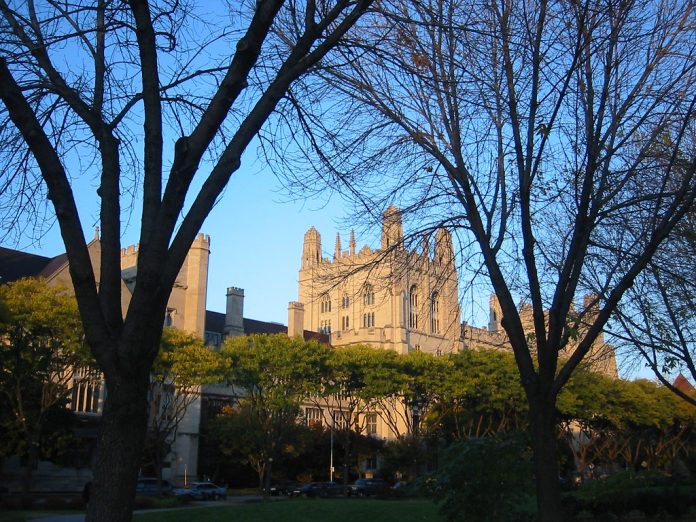Free speech reforms on college campuses take several forms, involve many actors, and are often based on Chicago Principles, reports Paideia Times.
Free Speech Reform as an Outsider’s Game
Some who believe that campuses are not upholding free-expression and open-inquiry values are seeking reform through outside pressure, using the law and appealing to government agencies.
For example, after several University of California, Berkeley School of Law student organizations pledged to boycott pro-Israel speakers, a civil rights complaint on behalf of Jewish students and faculty was filed with the Department of Education, which opened an investigation. And a Young Americans for Liberty chapter is suing the University of Alabama in Huntsville, arguing that the school’s policies requiring permits and limiting some expression to “free speech zones” violate First Amendment freedoms.
Rather than using the law, the Foundation for Individual Rights and Expression and College Pulse pressure colleges through public opinion by ranking them; in the just-released 2023 College Free Speech Rankings, the University of Chicago, Kansas State University, and Purdue University take top spots. Schools further down in the rankings may be expected—by some alumni, donors, and trustees—to move up their positions.
Free Speech Reform as an Insider’s Game
Universities are taking measures to protect free speech and academic freedom.
Some schools are playing cleanup, as when faculty of Massachusetts Institute of Technology adopted a statement on free expression, one year after MIT withdrew its invitation to University of Chicago Professor Dorian Abbot because of his views on affirmative action. Similarly, the University of California Hastings School of Law adopted an events policy disallowing the heckler’s veto, months after legal scholar Ilya Shapiro was shouted down.
Trustees at the University of Texas System and the University of Oklahoma adopted the University of Chicago statement, considered one of the first and best defenses of free speech in the business.
The University of Wisconsin System, also an early adopter of the UC statement, in 2015, took new steps by surveying student perceptions of the campus climate in regard to free speech and establishing the Wisconsin Institute for Citizenship and Civil Dialogue.
Some say these statements, policies, and initiatives are all well and good, but what is most needed is a culture shift so students are prepared to have their opinions challenged. To that end, the president at the University of New England has established a cash prize for faculty who excel at challenging students with robust discourse on contentious topics, while a pair of undergraduates write that their fellow students should choose to “avoid ‘identity opinion,’ in which they typecast other students as, say, dyed-in-the-wool liberals or dogmatic conservatives based on one expressed opinion.”
How About a “Chicago Trifecta” for Free Speech?
A recent gathering of right-leaning academics at Stanford highlighted the difficulties that both conservative and liberal educators face in this regard, while left-leaning academics decry efforts to crack down on “woke” professors and administrators, particularly at public colleges and universities.
Some recent movements have begun to actively push back. One tactic that has been gaining popularity is to encourage higher education institutions to adopt policies that ensure free speech.
For example, Princeton professor Robert P. George has gone on record in support of universities’ adopting what he calls the “Chicago Trifecta,” consisting of the Chicago Principles of free speech; the Kalven report, which requires “institutional neutrality on political and social matters”; and the Shils report, which makes “academic achievement and promise the sole basis for hiring and promotion.”
But critics contend that, while these proposed reforms are good, they are ultimately insufficient. Effecting real change on campus, they argue, requires cultivating a culture of civil discourse.
Originally published by Paideia Times. Republished with permission.
For more on higher education issues read School Reform News.








